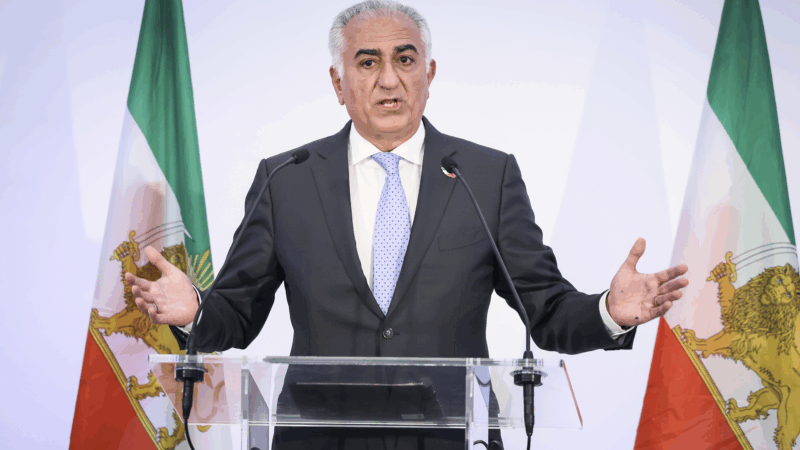Alabama lawmakers pass legislation that could give pregnant women more access to health care
By Safiyah Riddle
MONTGOMERY, Ala. (AP) — Alabama legislators unanimously passed a bill on Tuesday that would expedite access to Medicaid for pregnant women, as more states across the South attempt to stem high maternal and infant mortality rates.
The “presumptive eligibility” legislation states that Medicaid will pay for a pregnant woman’s outpatient medical care for up to 60 days while an application for the government-funded insurance program is being considered.
The bill will now go to Republican Gov. Kay Ivey’s desk for her signature.
Many Republican legislators endorsed the bill as “pro-life.” Democratic lawmakers said that it was essential for addressing Alabama’s delivery health outcomes that lag behind the rest of the country.
Other states have adopted a similar strategy for addressing some of the highest infant and maternal mortality rates nationwide. Legislators in Mississippi and Arkansas have passed laws that would offer similar coverage to expectant mothers.
One study found Alabama had a maternal mortality rate of 64.63 deaths per 100,000 births between 2018 and 2021, nearly double the national rate of 34.09 per 100,000 births. That jumps to 100.07 deaths for Black women in the state.
Hospital closures in rural parts of the state have left many women without access to prenatal care. Last year, nearly 1 in 5 pregnant Alabama women didn’t receive prenatal care until after five months of pregnancy, or otherwise received less than 50% of the appropriate number of the recommended visits throughout her pregnancy, according to The March of Dimes.
That is in part because one in six women of childbearing age fall within the coverage gap, making too much to qualify for Medicaid but too little to afford private insurance, according to Alabama Arise, an advocacy group for low-income families.
Alabama is among 10 states nationwide that have not expanded Medicaid, which means many low-income women are only eligible for Medicaid once they become pregnant.
A pregnant woman in Alabama with no dependents can qualify for Medicaid if she makes $21,996 or less, or up to $37,704 if she is part of a household of three.
Medicaid was used to pay for 45% of all births in Alabama in 2023, according to the most recent report published by the Alabama Department of Public Health. More than half of all infant deaths were to mothers who used Medicaid.
The Alabama bill would increase Medicaid spending statewide by about $1 million annually over the course of three years, with about two-thirds coming from the federal government.
Another bill that advanced in March seeks to expand access to medical care for expectant mothers by allowing midwives to provide care outside of hospitals in freestanding birth centers. But recent amendments to the legislation prohibits midwifes from performing many standard medical screenings for newborns that are necessary to detect genetic disorders.
The Alabama Midwives Alliance said that the legislation “started as a good bill” in a video posted on Facebook in April, but added that the amendments “take it in the wrong direction.”
___
Safiyah Riddle is a corps member for The Associated Press/Report for America Statehouse News Initiative. Report for America is a nonprofit national service program that places journalists in local newsrooms to report on undercovered issues.
Bob Weir, guitarist and founding member of the Grateful Dead, has died at 78
For three decades with the Grateful Dead and three more after the group ended following the 1995 death of his bandmate Jerry Garcia, Weir helped build and sustain the band's legacy across generations.
Nationwide anti-ICE protests call for accountability after Renee Good’s death
Activist organizations are planning at least 1,000 protests and vigils this weekend. Officials in major cities cast Saturday's demonstrations as largely peaceful.
Veteran actor T.K. Carter, known for ‘The Thing’ and ‘Punky Brewster,’ dies at 69
T.K. Carter gained fame as Nauls the cook in John Carpenter's 1982 horror classic, "The Thing."
Who is Reza Pahlavi, the exiled Crown Prince encouraging demonstrations across Iran?
In exile for nearly 50 years, Iran's Crown Prince Reza Pahlavi has issued calls urging Iranians to join protests sweeping the country. But support for him may not be clear cut.
US launches new retaliatory strikes against ISIS in Syria after deadly ambush
The U.S. has launched another round of strikes against the Islamic State in Syria. This follows last month's ambush that killed two U.S. soldiers and an American civilian interpreter.
6 killed in Mississippi shooting rampage, authorities say
The alleged gunman, 24, has been charged with murder after the Friday shootings in northeast Mississippi. The victims include his father, uncle, brother and a 7-year-old relative, authorities said.






